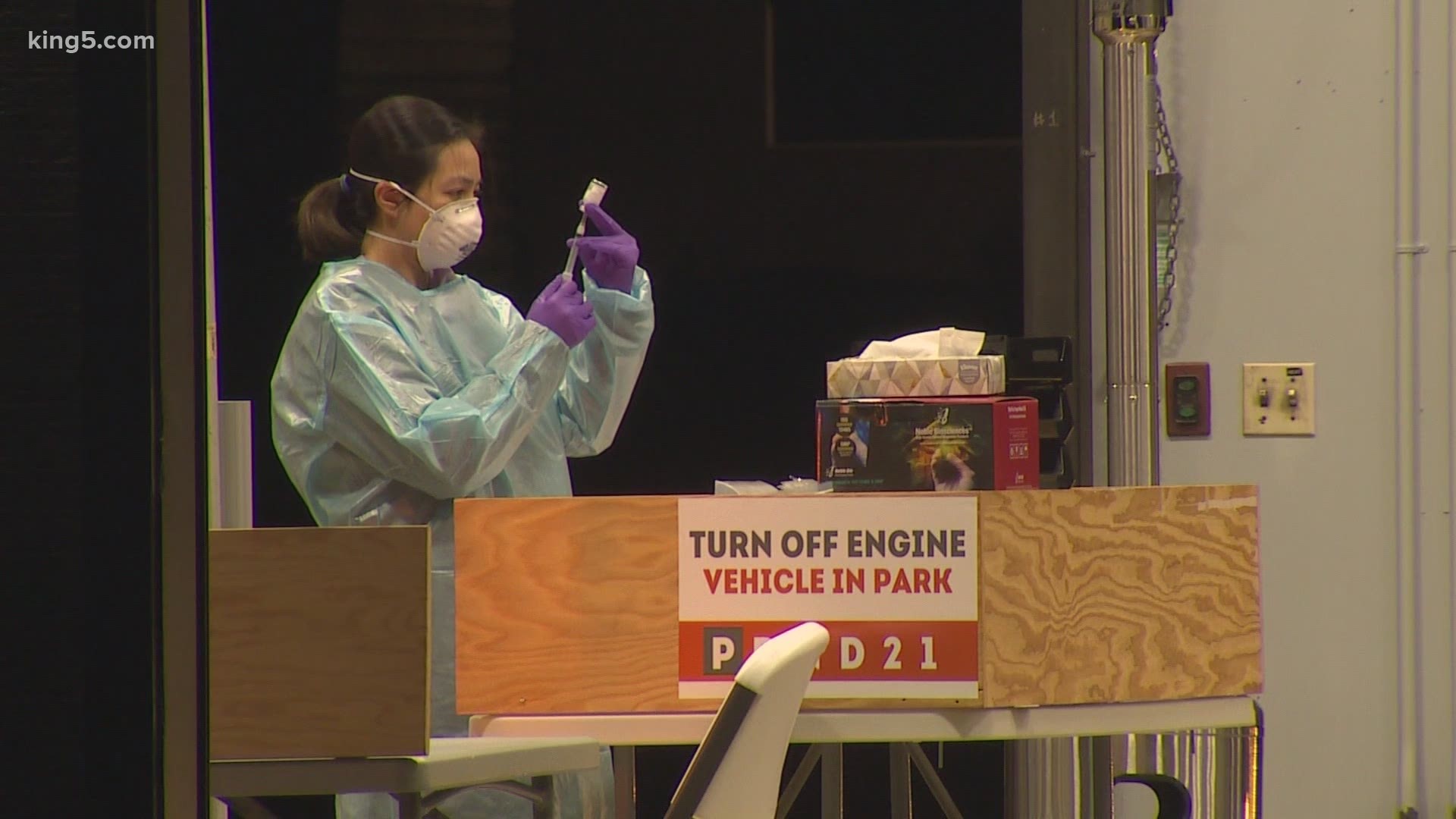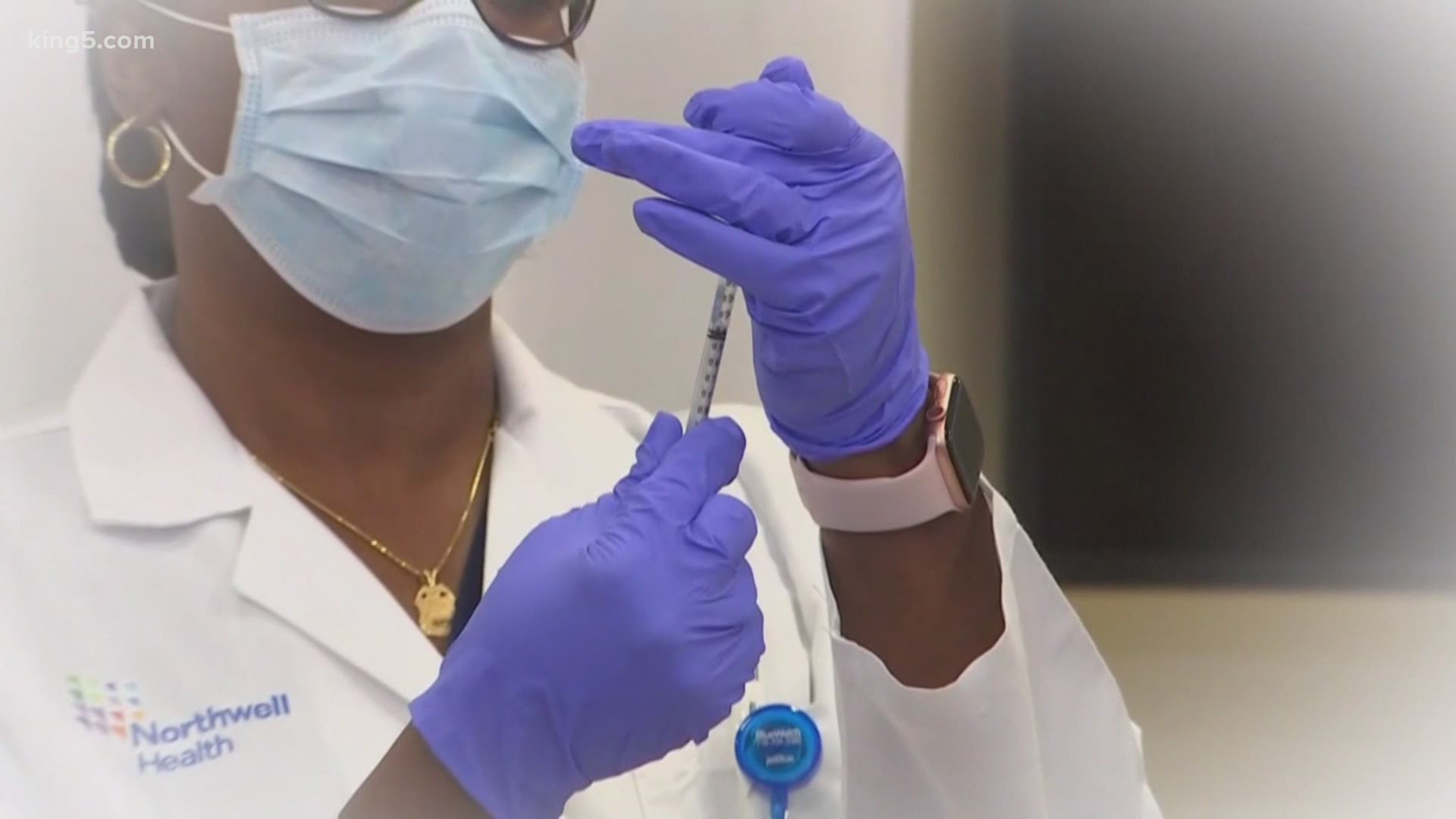SEATTLE — Low-income patients who don’t have regular access to healthcare and may mistrust COVID-19 vaccines may be among the most difficult populations to reach, as the region rolls out its vaccination plans.
Dr. Carolyn Halley, medical director of HealthPoint, a network of community clinics in King County, is tasked with listening to those patients’ concerns, answering their questions, and then explaining that she, as a doctor, believes in vaccines.
“We have to start and end the conversation with mutual respect,” Halley said on Tuesday.
Currently, the vaccines are only available to healthcare workers and older patients in nursing homes.
But widespread community outreach will be vital, as the vaccine opens up to the public.
HealthPoint is developing plans to notify patients when it is their turn to get vaccinated against the coronavirus.
“That can be as simple as a phone call or a letter, and that will work for some people, and it could be something that is more grassroots, like staging an event where the population that we're trying to target congregates,” Halley said.
She said HealthPoint leans on groups like the Somali Health Board and the Iraqi/Arab Health Board to reach patients and help educate them about vaccines.
“It's going to have to be a very wide campaign that is using mass media as well as one-on-one conversations that a doctor is going to have with their patient, or a son is going to have with their father, or a friend is going to have with their friend,” she said. “It's going to have to be on all of these levels.”
HealthPoint is also developing plans to remind patients to come in for their second dose of the two-dose coronavirus vaccine.
Tactics could include scheduling the follow-up appointment during the first appointment, sending text message reminders and giving patients a bright piece of paper to hang on their refrigerator to remind them of their appointment date.
“Some people are going to respond more to old-school efforts," Halley said.


